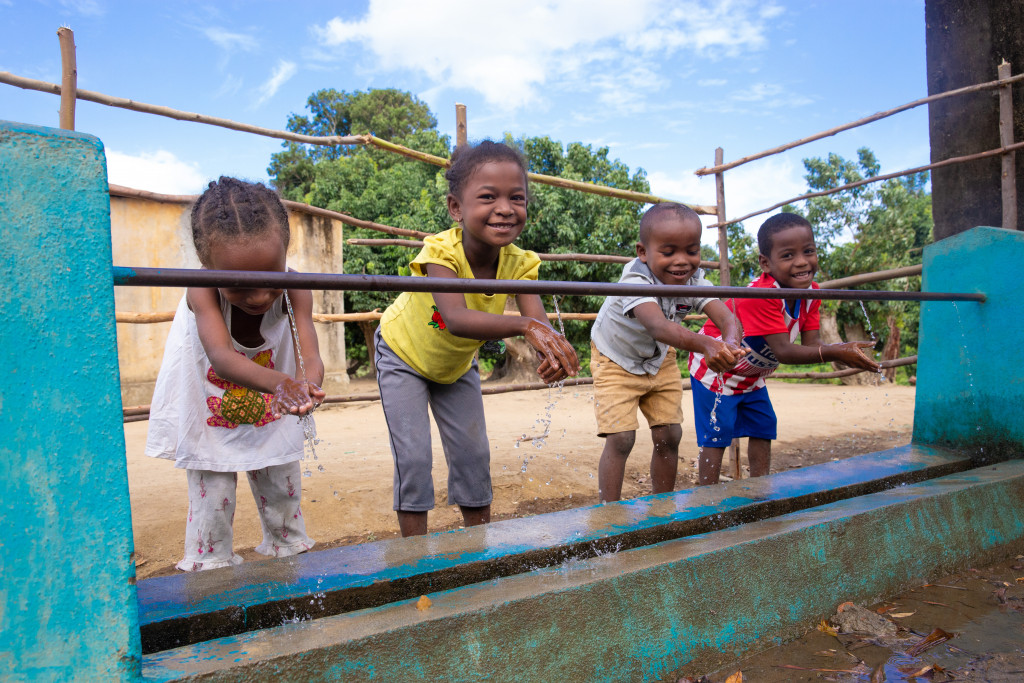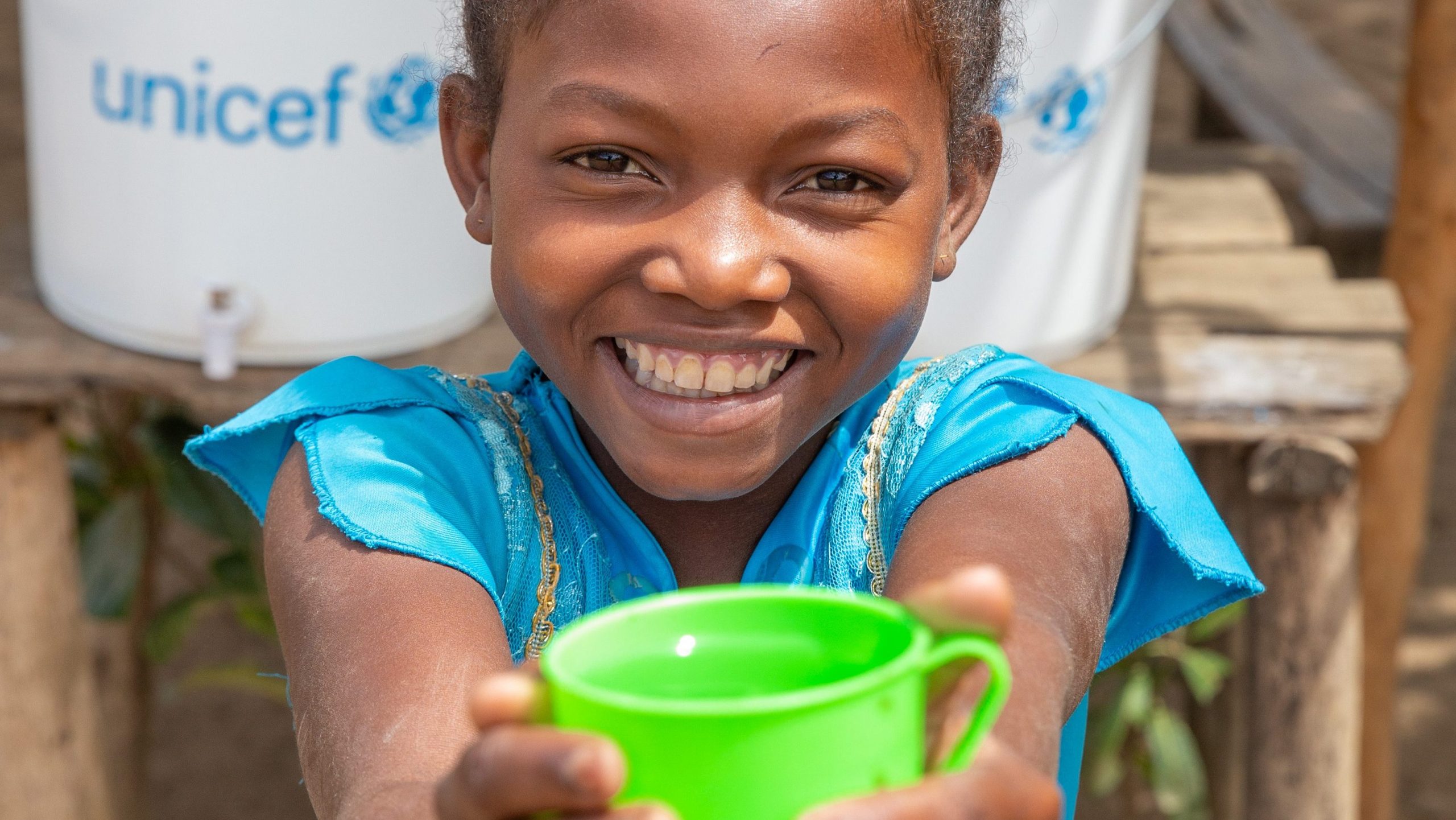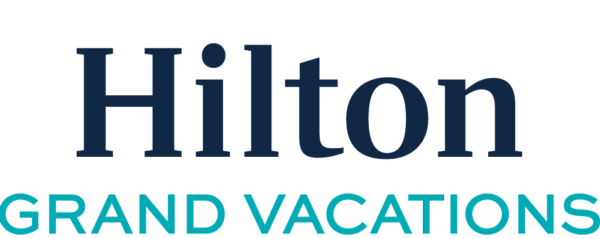September 2020 – September 2023
Ensure the availability and sustainable management of water and sanitation, particularly in health centres, within the framework of adequate universal health coverage.
Objectives
- To improve the availability of sustainable drinking water, sanitation and hygiene facilities, to enhance communities’ health and reduce their vulnerability to drought.
- To strengthen local capacities to manage and keep water points in 11 vulnerable communities in the Androy region.
Beneficiaries
4,000 directs
2,020 children under 15 and 2,080 women.
Between 12,000 and 25,000 indirects
Between 5,760 and 12,000 children under the age of 15 and between 6,240 and 13,000 women. Families of neighboring rural communities, authorities, and educational and health personnel of the intervention areas.

On the ground
High consumption of surface water and extension of open defecation. Child malnutrition and endemic diseases that cause high mortality rates.
57% of the population in Madagascar depends on surface water or non-improved water points for their supply. On the other hand, the island is among the 10 countries with the highest rate of open defecation: 40% of the population, that is, more than 10 million people, practices it, while only 17% has access to basic sanitation. As for hygiene, only 23% of the population has access to a basic handwashing service.
In the case of Androy the main problem is the lack of water and the recurrence of malnutrition among children due to droughts. The consumption of surface water, open defecation and poor hygiene practices, such as handwashing with soap, are directly responsible for 90% of the cases of diarrhea (second cause of childhood mortality in Madagascar) and have a direct influence on chronic malnutrition or growth retardation that affects 42% of all children under the age of five.
With regard to the coronavirus pandemic, the UNICEF office in Madagascar has developed a Covid-19 “+” 2020 response plan mainly based on WASH activities (Water, sanitation and hygiene).

In detail
Participation is key throughout the entire project and is led and facilitated at all times by UNICEF Madagascar following the guidelines of the We Are Water Foundation in the sustainable construction of latrines, summarized in the Construction manual of latrines and wells.
Methodology is based on the participation of the community from the very beginning, both in the location of boreholes and water pumps in the community and in the identification of inadequate hygiene practices, the implications of these practices on health and the environment, which are the main open defecation points, etc.
Community plans for the access to drinking water will also be developed, always with the direct participation of communities.
The project will contribute to a cross-sectional decentralized implementation program with the aim of reaching the “All in One” status, promoted by the Government to provide a comprehensive set of WASH packages and services to the community.
Prospects for sustainability
All interventions are based on a deep analysis and consultation processes with all beneficiaries, national authorities and local and religious leaders in the intervention area. Community participation is present throughout the entire project cycle, from the diagnosis to the construction of wells, water pumps, latrines and assessment of the ODF status of the community, as well as local plans for safe water. Hygiene promotion materials will be produced in the languages of the beneficiary populations and will be accessible to people with different skills and education levels. In turn, the participation of district authorities guarantees a development plan to respond to the priorities identified in the community.
The methodology implemented stands out for its feasibility and sustainability, as it is the community itself that participates in the design of the facilities and in the preparation of local plans. Due to the high degree of participation, the impact of the intervention is higher, the community takes ownership of it and a change in behavior and habits occurs. Likewise, due to the high impact on the population, this is a methodology prone to be replicated in other areas of the country.




